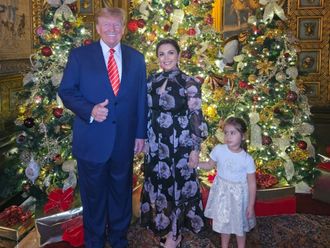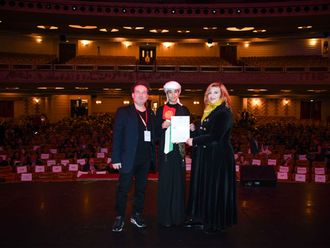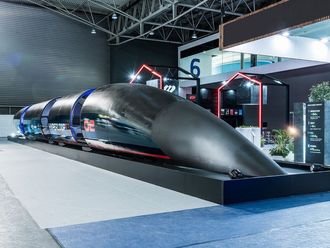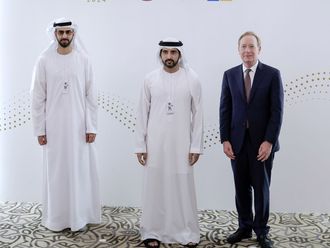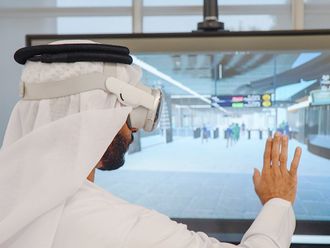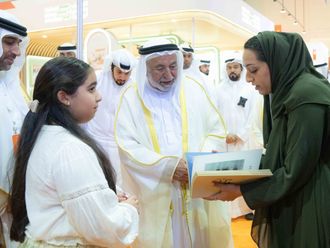Vice-President and Foreign Affairs Secretary Teofisto Guingona has offered President Gloria Macapagal-Arroyo an alternative to the holding of the extended wargames between U.S. and Philippine troops in Zamb-oanga City and Basilan Island.
Many claim the wargames are meant to quash the Abu Sayyaf which is still holding two American and one Filipina hostage.
Guingona said he would raise the proposed alternative at today's National Security Council meeting and pointed out that he was disregarded after raising them in three previous meetings with Arroyo.
A source said that Guingona will make a strong argument against the extended stay of the American troops and cite violations of the Constitution.
Armed Forces Chief of Staff Gen. Diomedio Villanueva said this is a sign that Guingona will not sign the proposed agreement.
Earlier, the Philippine Defence Board Council, in a meeting with U.S. Secretary of State Colin Powell, did not approve the expanded and extended wargames in Basilan, Guingona revealed.
On January 12, Guingona claimed he raised his objections to the controversial wargames in a meeting with Arroyo, Executive Secretary Alberto Romulo, Defence Secretary Angelo Reyes and presidential spokesperson Rigoberto Tiglao.
In that meeting, the Defence Department presented a briefing on the wargames which Guingona saw as a fait accompli.
Earlier, Guingona hinted he has a proposal for Arroyo, adding: "The nature of what we are discussing is so sensitive that (it) may involve life." He did not give details.
"Guingona's proposal is considered an alternative to what is going on in the Southern Command in Zamboanga City," said the source.
Arroyo, in accordance with her policy to back the U.S.-led global war on terrorism, agreed to the extended wargames in Zamboanga City and Basilan after the Abu Sayyaf was linked to Osama bin Laden's Al Qaida terrorist network.
Meanwhile, U.S. engagement in pursuit operations against the Abu Sayyaf is not covered by the Visiting Forces Agreement. If such activity were part of the joint operations it must be stopped, said VFA author Senator Blas Ople.
For this to continue, a new treaty is required, but it is a treaty which the Senate must reject, Ople added.
The 1951 Mutual Defence Treaty allows joint bilateral exercises for training but they should not be intended for combat or for crushing internal rebellions, Guingona said.
Six hundred American troops will be advising and training Filipino troops in combat areas in Basilan within the framework of joint military exercises called "Freedom Eagle 2002". This year's exercises will be conducted against the Abu Sayyaf since American troops will be deployed in combat zones.
Under the VFA, which was ratified by the senate in 1998, the constitutional prohibition applies only to permanent bases and facilities and not to short visits which should not last more than four weeks.
Guingona has complained that Malacañang, the presidential palace, has allowed the American troops to stay for a year.
At the same time, Guingona was also against the approval of a new military agreement with the United States, which would allow the latter to have access in Philippine sea and air ports, including the controversial stockpiling of arms.
The U.S.-proposed Mutual Support and Logistics Agreement is a 10-year "arrangement" which was signed by the Armed Forces Chief of Staff, for the Philippines, said a source. Admiral Dennis Blair, the commander in chief of the U.S. Pacific Command, reportedly signed for the United States.
Guingona was bypassed when Villanueva was made the country's signatory. Guingona co-chairs the RP-U.S. Mutual Defence Council with U.S. Secretary of State Colin Powell, a source said.
The U.S.-proposed MSLA is being negotiated directly between the U.S. and Philippine Defence Departments. Arroyo said it is not a treaty but an executive agreement which does not require Senate ratification. Guingona believes otherwise.
In several press interviews, Guingona has hinted at resignation.
Expected to attend the NSC meeting today are former Presidents Corazon Aquino and Fidel Ramos, Senate President Franklin Drilon, House Speaker Jose de Venecia, the majority and minority leaders in both chambers of Congress and National Security Adviser Roilo Golez.
Showdown looms over wargames
Vice-President and Foreign Affairs Secretary Teofisto Guingona has offered President Gloria Macapagal-Arroyo an alternative to the holding of the extended wargames between U.S. and Philippine troops in Zamb-oanga City and Basilan Island.



